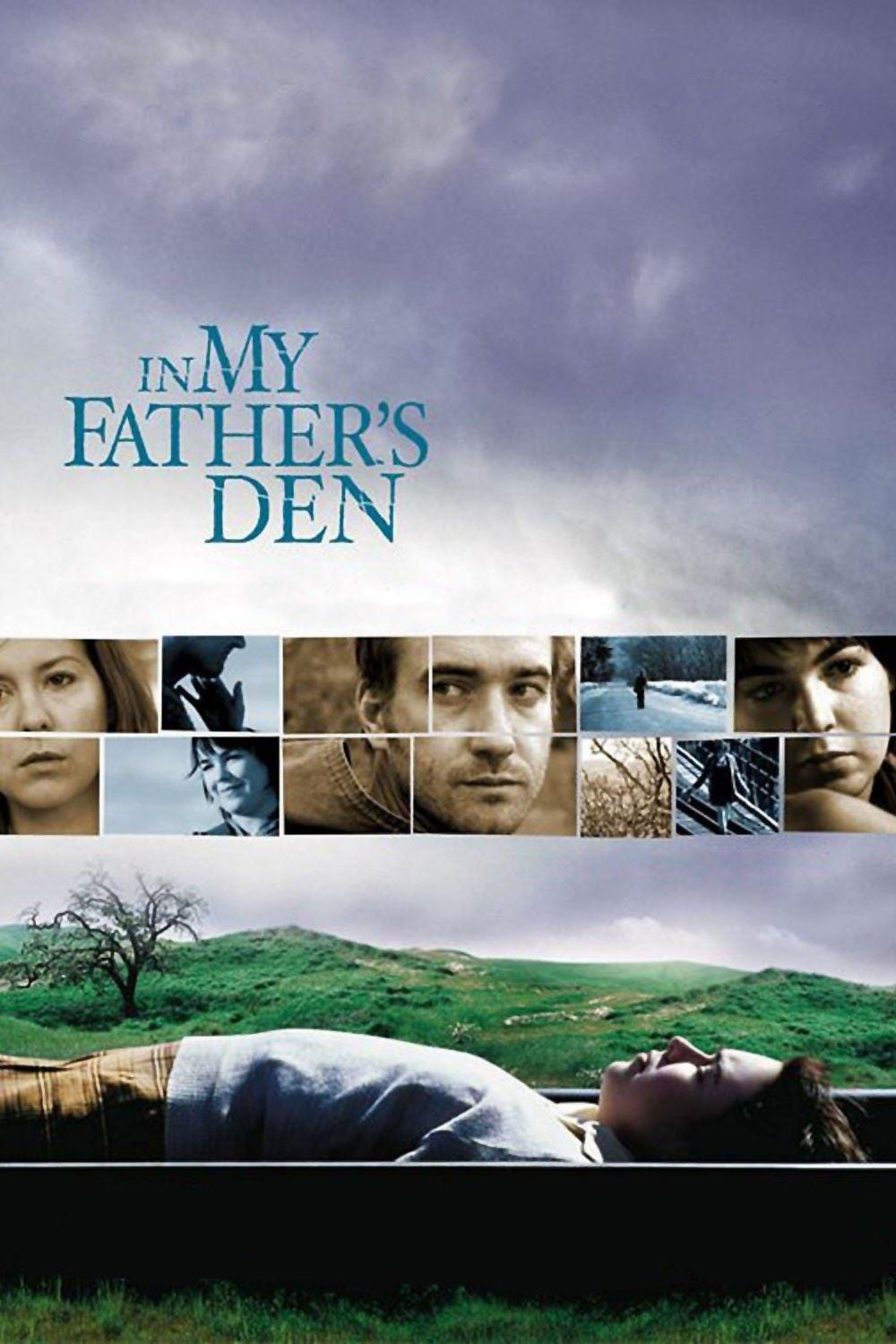
Paul (Macfadyen), a prize-winning war journalist, returns to his remote New Zealand hometown due to the death of his father, battle-scarred and world-weary. For the discontented sixteen-year-old Celia (Barclay) he opens up a world she has only dreamed of. She actively pursues a friendship with him, fascinated by his cynicism and experience of the world beyond her small-town existence. But many, including the members of both their families (Otto, Moy), frown upon the friendship and when Celia goes missing, Paul becomes the increasingly loathed and persecuted prime suspect in her disappearance. As the violent and urgent truth gradually emerges, Paul is forced to confront the family tragedy and betrayal that he ran from as a youth, and to face the grievous consequences of silence and secrecy that has surrounded his entire adult life.
23 May In My Father’s Den (2004)
Spatial War, Redhead Landscapes, Image and Word Woven Together Apart
Australia is vital to my life in film. From an American perspective, New Zealand is normally clumped in there as well — something that annoys Kiwis to no end. At least in terms of film, they differ: more direct, honest, intimate. Unfortunately, you pretty much have to go to the place to experience their films. Well, I did and found this little gem.
I am a student of introspection in film, with one of the more fascinating elements being where that introspection is placed. One end of a spectrum has characters wondering about themselves — the stuff of ordinary drama. Another end has the audience discovering and masticating about what they see and how. In between are not mere continuous stations but “folds” where for instance characters wonder about the nature of how they are being watched.
Many Kiwi films have a unique take on this. There was one my last trip having to do with magical dairy farming. This is similar in stance, a backward fold.
We have an on-screen detective who I can describe broadly as our “filmmaker”. He is from the town, left because of some unknown trauma and is now returned. We discover what he does, but in this case, he has knowledge we do not. This trivial twist on the standard form is rather profound.
The story involves a teen girl he encounters and strangely befriends. There are events. They are relatively unimportant, but they allow us to engage in this strange inverted discovery. The outer form of the “thriller” is there: a murder, an innocent man — our “detective” — is suspected. There are red herrings. Confusing sexual impulses are thrown in. There is a twist, wholly unexpected but completely sensible. The resolution is typical with flashing policecar beacons calmly arresting the right guy so we know justice will take things from there.
But within this form, this inverted discovery is very, very clever. A good piece of writing.
There are books involved: the girl who dies is a writer and it is in effect her script we stand on.
Our detecting hero is in fact a war photographer. Images — including a photograph not his own, a strange never-explained painting, and a photo of a girl he took — become characters in their own right. The den of the title is a space where key events take place. The camera could have done better with this space, but it does well in making it secret, special, evocative of dangerous unknowns — the place that holds the inner war our hero has been trying to see and convey.
(The only really false scene is at the end when our hero strides away from the place, engulfed in flames behind him. The setup is so trite I cry when I think of it being the last image folks will take away from this. I advise you to stop watching when the Zippo lighter that has failed many times suddenly works.)
The images and the writing entwine.
The den is notable by being something the father created that was invisible to his wife. She is a thin, pale redhead that we only see in flashes. The redheadedness here is a shorthand for her inner wars which drive the whole thing, and which needs the den apart. She is mirrored by a daughter in law who could have been played by the same actress: identically redheaded and lost.
Posted in 2010
Ted’s Evaluation — 3 of 3: Worth watching.


No Comments